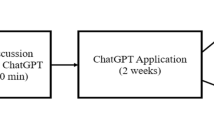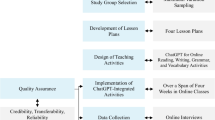Abstract
Specialized vocabulary is essential to second language (L2) students studying English for specific purposes (ESP) because it makes up a great proportion of words in specialized texts. While the potential for learning specialized vocabulary through audiovisual inputs (e.g., TV programs and movies) have been recognized, the potential for learning specialized vocabulary from the widely used audiovisual resource, TED talks, has not been explored. This study thus aims to explore if TED talks can be potential materials for improving students’ knowledge of specialized vocabulary through examining the vocabulary on the Medical Spoken Word List (MSWL) in medicine-related TED talks. Results show that 861 out of the 895 MSWL words (96.2%) occur in the TED talks, and an average of 100 MSWL words appear in a single TED talk, suggesting that students are very likely to encounter much specialized vocabulary when viewing TED talks. Compared to medicine-related TV drama series, another audiovisual resource supportive for learning the MSWL words, the TED talks actually contain a higher density of MSWL words, suggesting that it might be more efficient for students to view TED talks for improving their medical vocabulary. This study also provides pedagogical implications regarding the application of TED talks for ESP instruction.
摘要
專業詞彙對於學習專業英文的學習者而言相當重要, 因為這些詞彙在專業文章中占了相當大的比例。雖然許多研究已認同視聽資源(如:電視節目和電影)於輔助專業詞彙學習上的潛在幫助, 但透過常用的視聽資源-TED Talks學習專業詞彙的可能尚未被探討過。因此, 本研究旨在基於醫學口語詞彙表(MSWL)分析醫學主題相關的TED Talks的專業詞彙涵蓋, 以探討TED Talks是否可能為輔助專業詞彙習得的潛在資源。結果顯示, 在895個MSWL詞彙中, 有861個(96.2%)出現在TED Talks中, 而每個TED Talks中平均會出現100個MSWL詞彙, 這表明學生在觀看TED Talks時很可能會遇到許多專業詞彙。而與另一個有益於MSWL詞彙習得且同為視聽資源的醫學主題電視劇相比, TED Talks中的MSWL詞彙密度更高, 顯示觀看TED Talks在醫學詞彙的學習上可能效率更高。本研究亦提供了關於應用TED Talks於專業英語教學中的相關建議


Similar content being viewed by others
References
Dang, T. N. Y. (2020). The potential for learning specialized vocabulary of university lectures and seminars through watching discipline-related TV programs: Insights from medical corpora. Tesol Quarterly, 54(2), 436–459.
Hou, H. I. (2014). Teaching specialized vocabulary by integrating a corpus-based approach: Implications for ESP course design at the university level. English Language Teaching, 7(5), 26–37.
Evans, S., & Morrison, B. (2011). Meeting the challenges of English-medium higher education: The first-year experience in Hong Kong. English for Specific Purposes, 30, 198–208. https://doi.org/10.1016/j.esp.2011.01.001
Csomay, E., & Petrović, M. (2012). “Yes, your Honor!”: A corpus-based study of technical vocabulary in discipline-related movies and TV shows. System, 40(2), 305–315.
Webb, S., & Nation, I. S. P. (2017). How vocabulary is learned. Oxford University Press.
Coxhead, A. (2018). Vocabulary and English for specific purposes research: Quantitative and qualitative perspectives. Routledge. https://doi.org/10.4324/9781315146478
Floyd, M., & Jeschull, L. (2012). Teaching with TED talks: Authentic and motivational language instruction. Newsletter of the Video and Digital Medial Interest Section. Retrieved from newsmanager.commpartners.com/tesolvdmis/issues/2012–08–10/12.html. Accessed 19 Mar 2019.
Liu, C. Y., & Chen, H. H. J. (2019). Academic spoken vocabulary in TED Talks: Implications for academic listening. English Teaching & Learning, 43(4), 353–368.
Jelani, N. A. M., & Boers, F. (2018). Examining incidental vocabulary acquisition from captioned video: Does test modality matter? ITL-International Journal of Applied Linguistics, 169(1), 169–190.
Nguyen, C. D., & Boers, F. (2019). The effect of content retelling on vocabulary uptake from a TED talk. TESOL Quarterly, 53(1), 5–29.
Salem, A. A. (2019). A sage on a stage, to express and impress: TED Talks for improving oral presentation skills, vocabulary retention and its impact on reducing speaking anxiety in ESP settings. English Language Teaching, 12(6), 146–160.
Nurmukhamedov, U. (2017). Lexical coverage of TED talks: Implications for vocabulary instruction. TESOL Journal, 8(4), 768–790.
Mattiello, E. (2019). A corpus-based analysis of scientific TED Talks: Explaining cancer-related topics to non-experts. Discourse, Context & Media, 28, 60–68.
DaVia Rubenstein, L. (2012). Using TED Talks to inspire thoughtful practice. The teacher educator, 47(4), 261–267.
Webb, S. (2015). Extensive viewing: Language learning through watching television. In D. Nunan & J. C. Richards (Eds.), Language learning beyond the classroom (pp. 159–168). Routledge.
Webb, S., & Rodgers, M. P. (2009). The lexical coverage of movies. Applied Linguistics, 30(3), 407–427.
Coxhead, A., & Walls, R. (2012). TED Talks, vocabulary, and listening for EAP. TESOLANZ Journal, 20(1), 55–67.
Coxhead, A. (2000). A new academic word list. TESOL quarterly, 34(2), 213–238.
Wang, J., Liang, S., & Ge, G. (2008). Establishment of a medical academic word list. English for Specific Purposes, 27, 442–458. https://doi.org/10.1016/j.esp.2008.05.003
Liu, D., & Lei, L. (2020). Technical vocabulary. In S. Webb (Ed.), The Routledge handbook of vocabulary studies (pp. 111–124). Routledge.
Ha, A. Y. H., & Hyland, K. (2017). What is technicality? A technicality analysis model for EAP vocabulary. Journal of English for Academic Purposes, 28, 35–49.
Lei, L., & Liu, D. (2016). A new medical academic word list: A corpus-based study with enhanced methodology. Journal of English for academic purposes, 22, 42–53.
Nation, I. S. P. (2013). Learning vocabulary in another language Google eBook. Cambridge University Press.
Nation, I. S. P., & Coxhead, A. (2012). Special purposes vocabulary. In C. A. Chapelle (Ed.), Encyclopedia of applied linguistics (pp. 2–4). Hoboken, NJ: Wiley Blackwell.
Bečka, J. (1972). The lexical composition of specialized texts and its quantitative aspect. Prague studies in mathematical linguistics, 4, 47–64.
Chung, T. M., & Nation, P. (2003). Technical vocabulary in specialised texts. Reading in a Foreign Language, 15(2), 103–116.
Hsu, W. (2013). Bridging the vocabulary gap for EFL medical undergraduates: The establishment of a medical word list. Language Teaching Research, 17(4), 454–484.
Nation, I. S. P. (2008). Teaching vocabulary: Strategies and techniques. Heinle.
Todd, R. W. (2017). An opaque engineering word list: Which words should a teacher focus on? English for Specific Purposes, 45, 31–39.
Ward, J. (2009). A basic engineering English word list for less proficient foundation engineering undergraduates. English for specific purposes, 28(3), 170–182.
Valipouri, L., & Nassaji, H. (2013). A corpus-based study of academic vocabulary in chemistry research articles. Journal of English for Academic Purposes, 12(4), 248–263.
Chen, H., & Lei, G. (2019). Developing a technical words list for research articles in computer science discipline. English Language Teaching, 12(10), 131–141.
Gablasova, D. (2014). Learning and retaining specialized vocabulary from textbook reading: Comparison of learning outcomes through L1 and L2. The Modern Language Journal, 98(4), 976–991.
Vidal, K. (2011). A comparison of the effects of reading and listening on incidental vocabulary acquisition. Language Learning, 61, 219–258. https://doi.org/10.1111/j.1467-9922.2010.00593.x
Peters, E., & Webb, S. (2018). Incidental vocabulary acquisition through viewing L2 television and factors that affect learning. Studies in Second Language Acquisition, 40(3), 551–577.
Rodgers, M. P. H. (2013). English language learning through viewing television: An investigation of comprehension, incidental vocabulary acquisition, lexical coverage, attitudes, and captions (Unpublished PhD thesis). Victoria University of Wellington, Wellington, New Zealand.
Waring, R., & Takaki, M. (2003). At what rate do learners learn and retain new vocabulary from reading a graded reader? Reading in a Foreign Language, 15(2), 130–163.
Brown, R., Waring, R., & Donkaewbua, S. (2008). Incidental vocabulary acquisition from reading, reading-while-listening, and listening to stories. Reading in a Foreign Language, 20(2), 136–163.
Webb, S. (2007a). Learning word pairs and glossed sentences: The effects of a single context on vocabulary knowledge. Language Teaching Research, 11, 63–81. https://doi.org/10.1177/1362168806072463
Webb, S. (2007b). The effects of repetition on vocabulary knowledge. Applied Linguistics, 28, 46–65. https://doi.org/10.1093/applin/aml048
Nation, I. S. P. (2014). How much input do you need to learn the most frequent 9,000 words? Reading in a Foreign Language, 26, 1–16.
Rodgers, M. P. H., & Webb, S. (2011). Narrow viewing: The vocabulary in related television programs. TESOL Quarterly, 45, 689–717. https://doi.org/10.5054/tq.2011.268062
Webb, S. (2011). Selecting television programs for language learning: Investigating television programs from the same genre. International Journal of English Studies, 11(1), 117–135.
Liu, N., & Nation, I. S. P. (1985). Factors affecting guessing vocabulary in context. RELC Journal, 16, 33–42.
Laufer, B. (1989). What percentage of text-lexis is essential for comprehension? In C. Lauren & M. Nordman (Eds.), Special language: From humans to thinking machines (pp. 316–323). Multilingual Matters.
Stæhr, L. S. (2009). Vocabulary knowledge and advanced listening comprehension in English as a foreign language. Studies in Second Language Acquisition, 31, 577–607. https://doi.org/10.1017/s0272263109990039
Pellicer-Sánchez, A., & Schmitt, N. (2010). Incidental vocabulary acquisition from an authentic novel: Do things fall apart? Reading in a Foreign Language, 22(1), 31–55.
Webb, S., Newton, J., & Chang, A. (2013). Incidental learning of collocation. Language Learning, 63(1), 91–120.
Neuman, S. B., & Koskinen, P. (1992). Captioned television as comprehensible input: Effects of incidental word learning from context for language minority students. Reading research quarterly, 95–106.
Rodgers, M. P., & Webb, S. (2020). Incidental vocabulary learning through viewing television. ITL-International Journal of Applied Linguistics, 171(2), 191–220.
Feng, Y., & Webb, S. (2020). Learning vocabulary through reading, listening, and viewing: Which mode of input is most effective? Studies in Second Language Acquisition, 42(3), 499–523.
Lindgren, E., & Muñoz, C. (2013). The influence of exposure, parents, and linguistic distance on young European learners’ foreign language comprehension. International Journal of Multilingualism, 10(1), 105–129.
Peters, E. (2018). The effects of out-of-class exposure to English language media on learners’ vocabulary knowledge. International Journal of Applied Linguistics, 169, 142–168. https://doi.org/10.1075/itl.00010.pet
Dang, T. N. Y., Coxhead, A., & Webb, S. (2017). The academic spoken word list. Language Learning, 67(4), 959–997.
Cettolo, M., Girardi, C., & Federico, M. (2012). Wit3: Web inventory of transcribed and translated talks. In M. Cettolo, M. Federico, L. Specia & A. Way (Eds.), Proceedings of the 16th Annual Conference of the European Association for Machine Translation (EAMT 2012) (pp. 261–268). Retrieved from http://hltshare.fbk.eu/EAMT2012/html/Papers/59.pdf . Accessed 27 Dec 2018.
Anthony, L. (2014). AntWordProfiler (Version 1.4.1) [Computer Software]. Tokyo, Japan: Waseda University. Available from https://www.laurenceanthony.net/software. Accessed 29 Nov 2019.
van Zeeland, H., & Schmitt, N. (2013). Lexical coverage in L1 and L2 listening comprehension: The same or different from reading comprehension? Applied Linguistics, 34, 457–479. https://doi.org/10.1093/applin/ams074
Webb, S. (2008). The effects of context on incidental vocabulary learning. Reading in a Foreign Language, 20(2), 232–245.
Author information
Authors and Affiliations
Corresponding author
Ethics declarations
Conflict of Interest
The author declares no competing interests.
Appendix
Rights and permissions
About this article
Cite this article
Liu, CY. Are TED Talks Potential Materials for Learning Specialized Vocabulary? A Case of Medical Vocabulary. English Teaching & Learning 47, 97–118 (2023). https://doi.org/10.1007/s42321-021-00105-2
Received:
Revised:
Accepted:
Published:
Issue Date:
DOI: https://doi.org/10.1007/s42321-021-00105-2




